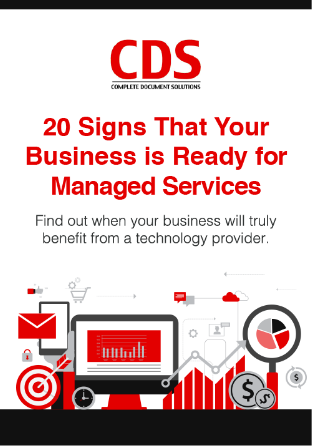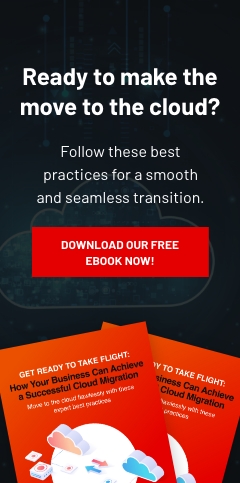Outsourcing your IT management and support isn’t a decision to take lightly. Make the wrong choice, and you could end up greatly increasing risk. But make the right choice, and you can expect to increase efficiency, reduce overheads, and make your business more adaptable to constant change in the market. Here are the top five questions you should ask to make sure you pick the right managed IT services provider (MSP):
#1. Do they understand your industry?
Technology offers a host of benefits to every industry sector, but the solutions and their implications are different for every business and vertical. For example, healthcare providers need to think about HIPAA compliance, while law firms need specialized case management solutions, and retail companies need secure payment systems.
When evaluating MSPs, be sure they can demonstrate expertise in your industry and have experience working with businesses of similar size and scope to your own. Also, make sure to ask for reports and case studies to see what they did for clients in the past. Beware of any MSP that claims to be everything to everyone, particularly if they’re smaller organizations. It’s always better to specialize.
#2. Can they support your existing infrastructure?
There’s an overarching shift to cloud technologies thanks to the scalability and cost-effectiveness they provide. But that’s only part of the picture. Chances are, you already have your own processes and solutions in place, and changing everything in one go probably isn’t the best idea.
A decent MSP is more than just a vendor. They shouldn’t be constantly selling new services and upselling an unending range of optional add-ons. Neither should they insist on completely replacing your existing IT department and infrastructure. Rather, they should be willing to augment your existing capabilities and become one with your business culture.
#3. Are they willing to provide proof?
If you’re looking to partner with a small, local MSP, you can’t reasonably expect them to have a huge share of experience with major corporations. But that doesn’t mean they shouldn’t be able to demonstrate expertise in their field and a proven track record of sticking to the rules outlined in their service level agreements (SLAs).
Download our free eBook!
Experiencing more and more IT difficulties recently? Maybe it's time to have a reliable IT partner. Read our free eBook: 20 Signs Your Business Is Ready for Managed Services and find out if the problems pestering your business’s IT requires the help of an MSP.
In many ways, evaluating an MSP is much like conducting research before buying a product. But you’ll want to rely on more than just reviews alone. An MSP should be willing to provide testimonials, preferably from other organizations in your industry. They must be able to provide certifications proving their compliance with any relevant regulations.
#4. What is their cybersecurity track record?
One of the biggest concerns facing business decision makers is information security. Many people believe that letting someone else take care of their applications and data puts them at risk. After all, MSPs are themselves favorite targets for hackers, but no more so than many other businesses. Fortunately, for the most part, these concerns are unfounded.
A dependable MSP provides a whole new level of security. One of the minimum service levels, for example, is round-the-clock performance and security monitoring, data backups, and advanced threat prevention systems. An MSP that has an untarnished record in cybersecurity will likely have reached economies of scale needed to proactively protect your business from a wide array of cyber threats.
#5. Who are their technical partners?
The best MSPs leverage an extensive suite of industry-leading applications and products to ensure the seamless delivery of their services. A trustworthy MSP should be willing to highlight and speak about the various tools they use and technical partners they have.
Watch out for MSPs who try to dodge the question or claim to have built their own apps in-house (particularly if they’re smaller companies). Any MSP should be able to prove they’ve invested in proven, high-quality solutions. After all, one of the main responsibilities of an MSP is to identify the best of breed technology for meeting your unique business goals.
Complete Document Solutions provides managed IT support to companies in Southern California. Call us today to find out if we’re the right fit for your organization.




Leave a comment!